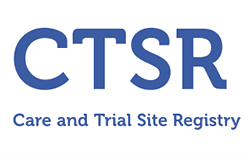Authors
Robert Fledrich, Manoj Mannil, Andreas Leha, Caroline Ehbrecht, Alessandra Solari, Ana L Pelayo-Negro, José Berciano, Beate Schlotter-Weigel, Tuuli J Schnizer, Thomas Prukop, Natalia Garcia-Angarita, Dirk Czesnik, Jana Haberlová, Radim Mazanec, Walter Paulus, Tim Beissbarth, Maggie C Walter, CMT- TRIAAL, Jean-Yves Hogrel, Odile Dubourg, Angelo Schenone, Jonathan Baets, Peter De Jonghe, Michael E Shy, Rita Horvath, Davide Pareyson, Pavel Seeman, Peter Young, Michael W Sereda
Journal
Journal of Neurology, Neurosurgery & Pyschiatry,
Publication date
August 2017
Abstract
Background Charcot-Marie-Tooth disease type 1A (CMT1A) is the most common inherited neuropathy, a debilitating disease without known cure. Among patients with CMT1A, disease manifestation, progression and severity are strikingly variable, which poses major challenges for the development of new therapies. Hence, there is a strong need for sensitive outcome measures such as disease and progression biomarkers, which would add powerful tools to monitor therapeutic effects in CMT1A.
Methods We established a pan-European and American consortium comprising nine clinical centres including 311 patients with CMT1A in total. From all patients, the CMT neuropathy score and secondary outcome measures were obtained and a skin biopsy collected. In order to assess and validate disease severity and progression biomarkers, we performed qPCR on a set of 16 animal model-derived potential biomarkers in skin biopsy mRNA extracts.
Results In 266 patients with CMT1A, a cluster of eight cutaneous transcripts differentiates disease severity with a sensitivity and specificity of 90% and 76.1%, respectively. In an additional cohort of 45 patients with CMT1A, from whom a second skin biopsy was taken after 2–3 years, the cutaneous mRNA expression of GSTT2, CTSA, PPARG, CDA, ENPP1 and NRG1-Iis changing over time and correlates with disease progression.
Conclusions In summary, we provide evidence that cutaneous transcripts in patients with CMT1A serve as disease severity and progression biomarkers and, if implemented into clinical trials, they could markedly accelerate the development of a therapy for CMT1A.
DOI link
10.1136/jnnp-2017-315721



